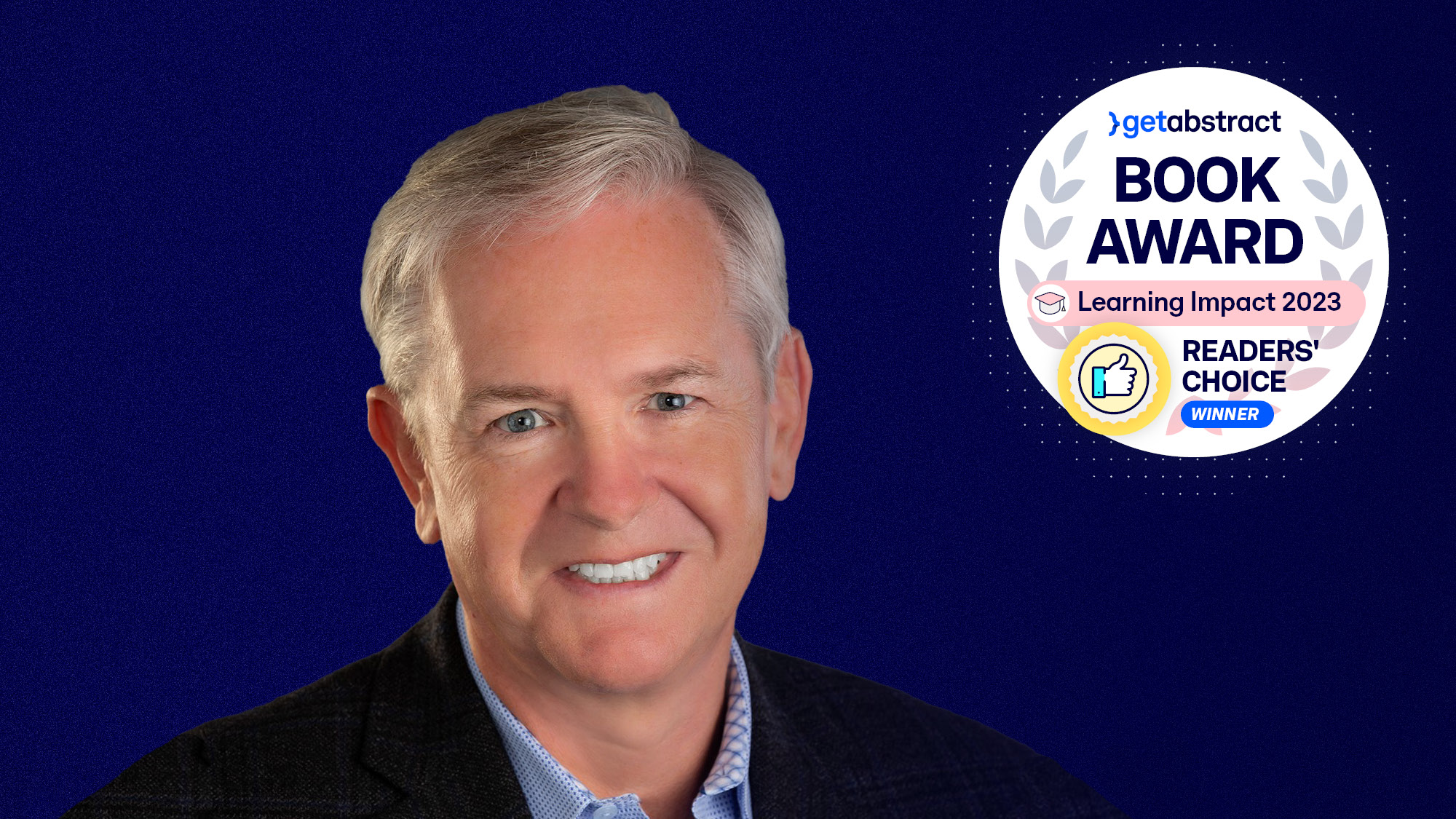“The Prosecutor’s Role Has Been Minimized.”
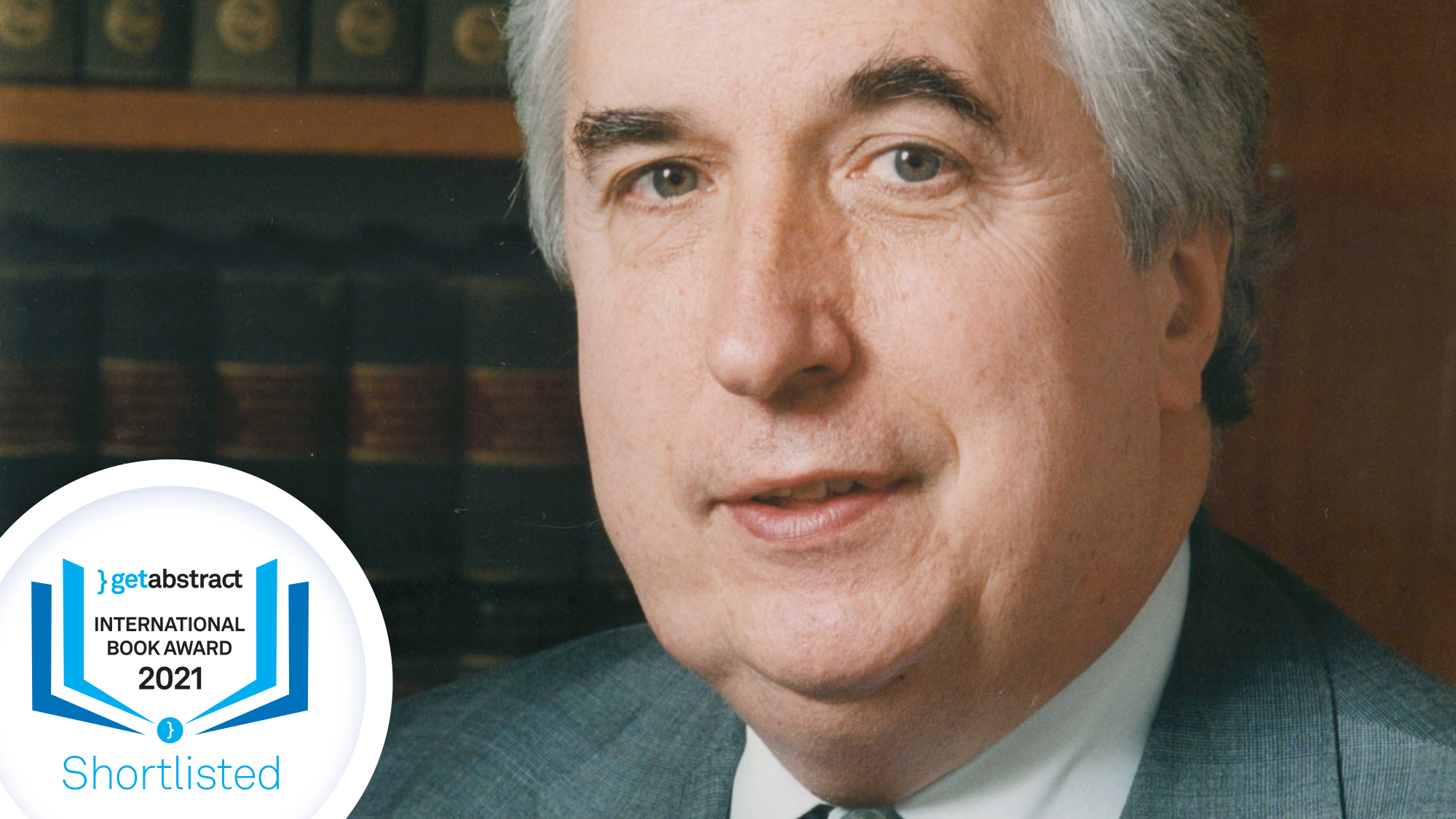
John Coffee, as you point out in your book, Corporate Crime and Punishment, often corporate executives do not pay much of a price for outright fraud. For instance, why didn’t any of the executives responsible for the 2008 financial meltdown go to prison?
Of course, there are always multiple reasons and no one explanation covers everything. But I think the largest problem is the logistical mismatch that US attorneys and other federal prosecutors face when they take on a large multinational financial institution. You are now dealing with a huge enterprise where decision-making is often decentralized and diffused within a broad bureaucracy. So, it’s hard to say that just one person made the decision. But most of all, it’s this mismatch.
How so?
Just to give an example: Suppose you were looking at an investigation to determine if a company made multiple corrupt payments in order to get large lucrative contracts, which is a recurring problem that gets regularly criminally investigated in the United States. What’s going to happen? You’re going to find that there are people you need to interview who are agents of the briber – or its US parent – or the bribee, who may have moved the money from one to the other.
And guess what? Suddenly you’re talking about 30 people you’ve got to interview in each of Central Asia, South America, someplace in Southeast Asia. There might be several million emails that you’ve got to look at, hundreds of documents and none of them are in English, or at least many are not in English.
John C. Coffee, Jr.
Who do you have to investigate all this? The typical US attorney’s office may have 70 or so attorneys. Maybe the US attorney has a white‐collar unit with a chief and five other attorneys and they’re working on this. And maybe he can afford to put two assistant US attorneys on this case, maybe even a third. And maybe they can get some help from the FBI or maybe the SEC, if it’s a financial case. So, they’ve got a team of at most five or six attorneys in such a case, and they’re facing problems on three or four continents, and in many different languages. The defendant corporation offers to cooperate and turn over all documents, but it’s this huge mountain of hay out of which there may be two or three little needles.
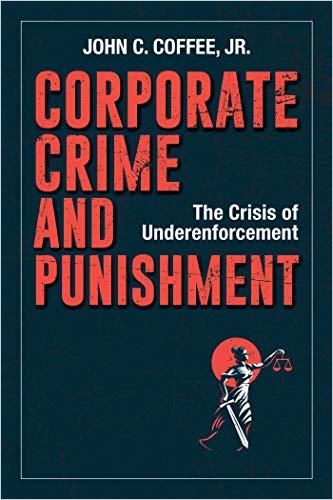
And the other side?
On the defense side, the company is quickly prepared, having done this before in all likelihood, and it has hired lawyers in each of those countries and several law firms in the United States. In terms of relative manpower, there may be a 100-to-1 mismatch in the lawyers working on the case. This will cost an awful lot to the company, but it will protect the senior executives. Some famous investigations have cost up to a billion dollars in lawyers and accountants – that’s the famous Siemens case, the German company.
That mismatch gets exploited by defense counsel. They quickly realize that the US government can’t take on all of these cases and doesn’t have the manpower to fully investigate any one of them.
John C. Coffee, Jr.
So defendants make an offer. They say, you know, there’s a pretty standard procedure called a “deferred prosecution agreement.” And we could either do our own investigation or we’ll go out and hire one of the best law firms in the country and they will conduct a thorough investigation and tell you everything. In return, you will enter into a deferred prosecution agreement with us under which we avoid any criminal conviction.
Because prosecutors don’t have the manpower.
What defendants are saying is, in effect: You don’t have the manpower to begin to scratch the surface, but we will get an excellent firm to go out and investigate. That’s their way of viewing it. The other way of viewing it is: We are delegating the prosecution’s critical investigatory function to an interested party. We’re letting the defendant choose who investigates him.
If I could choose the person to investigate me, I’m not going to hire Sherlock Holmes. Instead, I’m going to hire the inept Inspector Clouseau, the character in the Pink Panther movies.
John C. Coffee, Jr.
That’s the great problem with the rise of the deferred prosecution agreement. It is a response to the inability of the government to take on extremely complex criminal investigations all at the same time. In 2008, you didn’t get one such investigation. You got a dozen or more cases that deserved a very thorough investigation. And the government didn’t have the troops to do a serious investigation of any of these. The best example is Lehman, where the critical chief financial officers in some cases never even were interviewed by the Department of Justice or the SEC.
So, the deferred prosecution agreement basically puts the fox in charge of the hen house?
The deferred prosecution agreement is a response to several things. A factor aggravating this mismatch, but not by any means the sole cause of it, was that in 2001, we had the terrorist attacks on the World Trade Center. Quite understandably, the US government and Department of Justice in particular reallocated their troops in light of that crisis. They said, we’ve got to put a huge staff into terrorism and terrorism investigations. And where do we get them?
You don’t get experienced prosecutors overnight. You take what you have and you reallocate them. You steal from Peter to pay Paul.
John C. Coffee, Jr.
So, the staff of people investigating white-collar crime was depleted because there was a bigger priority: terrorism. That begins to leave the US attorneys understaffed with regard to white-collar crime prosecutions. So, we get to 2008. Now, those are two factors – first, the logistical mismatch, and second, the terrorism crisis compelled the government to reallocate its troops. There was also a possible third factor that no one can prove, although many suggested it, which I think deserves some weight: Maybe the Federal Reserve and the Treasury really didn’t want criminal indictments of senior officials at major banks.
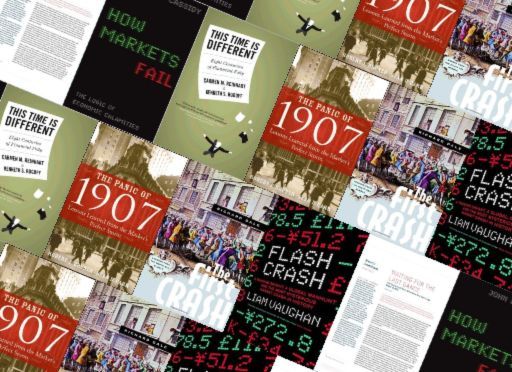
They feared that this would destabilize the recovery process and cast doubt or undermine the credibility of these banks. At the time, they were trying to shore up their credibility. Even in cases where some of the major banks looked like they were the corrupt agents of Mexican drug cartels, the government still did not indict. In an HSBC case, there was clear pressure from foreign governments. They publicly lobbied to keep their major banks from getting indicted.
What about senior management?
In those decentralized corporations, the CEO is really dealing with strategic management. He’s not involved in individual deals or transactions. The CEO of Goldman Sachs does not know what’s in that securitization that you just marketed to foreign investors on two continents and that later turned out to be very toxic. He wasn’t in charge of that. Those that were, were at a lower level, and some of them are gone by now, years later. There’s high turnover. So, we do not have a system in the United States – and I think it is desirable we not have a system – of what I would call vicarious liability. Vicarious liability means you’re liable for the acts of others.
The CEO is not liable. He does not go down with the ship like the loyal captain of the Titanic. You’ve got to prove that he had actual knowledge and intended to commit fraud and he’s usually pretty remote from this.
John C. Coffee, Jr.
Even those who do give actual orders don’t necessarily know the whole picture. They’re just looking at what’s going into this package of securities that is to be syndicated, not knowing anything about what are the expectations of the customers or what representations have been made. So, these fragmented decisions make it hard to show that one person had an intent to defraud.
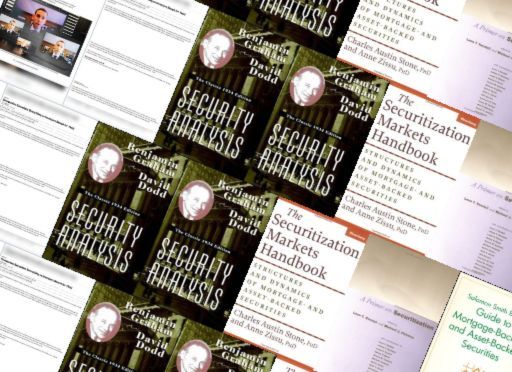
I’m not a lawyer, but from the taxpayer’s point of view, some questions come to mind. For instance, I remember, in the wake of the giant public bailout of these financial institutions, the newspapers reported the banks were using that money for executive bonuses at the same time they were getting prosecuted in that way.
I’m sympathetic to what you’re saying. I was giving more an explanation rather than a complete defense. But look at this from the point of view of the Treasury and the Federal Reserve. They have just given umpteen billion dollars to the six largest banks in the country. And now they hear the Department of Justice may try to indict those banks, fining them umpteen billion dollars. To them, this is all circular. We give them the bailout money and it gets paid back to the government. Nothing really beneficial happens, and the government’s policy is effectively canceled.
Right. That’s a good point. I guess it’s the money that went to the executives that hurts.
I think what you want is individual criminal liability. I’m not suggesting that you can’t deter corporations. I’m suggesting that the most effective form of deterrence is to lock individuals up. That threat will change their behavior.
How was the way the Department of Justice handled the financial crisis a departure from how they handled crimes in the past?
The world of deferred prosecution agreements, really, started as early as the 1990s with the Solomon Brothers case and the Prudential case. But it became a major force after 2001 and 2002. It was partly the need to find manpower and an inability to pursue all these cases at once. Also, prosecutors and defense counsel know each other. Most of the white-collar defense counsel are former prosecutors who will go over to the defense side at much higher pay. They know there are these logistical constraints. They know it was impossible in their day to get the manpower for a big prosecution. Indeed, the prosecution of Drexel Burnham in the 1980s literally forced the DOJ and the SEC to steal manpower from every place and shut down other investigations. That’s a real question about priorities: One big case or 20 smaller cases? And US attorneys have different views. But we began to develop this procedure, which was strangely enough borrowed from how federal law dealt with juveniles.
That does seem strange.
Suppose you have a juvenile who’s been caught with marijuana. He’s going to go to college next year. He’s clearly guilty of an offense for which, under the law in the 1980s and 1990s, he could get a couple of years in prison. What should we do? Well, the rational and, I think, the responsible way was to give juveniles a probationary-like discharge that says, “If you will admit to these facts and admit you were guilty, we will give you probation for 18 months. And if you complete that probation successfully, we will expunge your conviction.” That’s what a deferred prosecution agreement is. It’s sort of a period of probation after which the conviction is expunged.
You may pay a large fine; you may pay a billion dollar fine. But for a large corporation, that’s just the cost of doing business, and you don’t get the stigma of a criminal conviction. You don’t get the civil disqualifications.
John C. Coffee, Jr.
A bank, for example, if convicted of some crimes like money laundering, may lose its license; it may be unable to engage in banking. Well, you don’t want to destroy one of the 20 largest banks in the United States because it did one thing wrong. That destabilizes the economy. And that’s the problem with convictions that carry non-waivable civil disqualifications.
So, no criminal charges?
One of the factors that motivates defense counsel is they’re very concerned about class actions, particularly securities class actions. Those can follow in the wake of a criminal conviction. And, while the criminal conviction may have gotten you a $10 million dollar fine, or even a $100 million dollar fine, a class action on behalf of all injured investors may come to a billion dollars or more to compensate all investors for the stock price decline. And it’s very expensive to defend those suits. In those suits, if you’ve been criminally convicted, you can’t deny the charge to which you have already plead guilty. All you can do is challenge the standing of the plaintiff or some other legal issue.
You don’t get a second chance once you’ve plead guilty to a crime to say you were innocent of it. The deferred prosecution agreement gives the corporate defendant something that it really, really wants: they no longer waive their chance to deny their criminal involvement; the plaintiff now must prove its case from scratch.
John C. Coffee, Jr.
These deferred prosecution agreements began to pick up in the years after 2001 or 2002, and they came on in a wave. It began under Obama, but it mushroomed even larger under Trump, who really had no interest in prosecuting US public corporations.
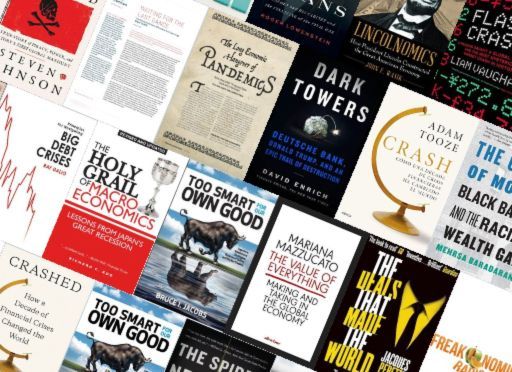
I understand what you’re saying and I certainly understand why it’s not in anyone’s interest for these especially large banks to have to fight a criminal charge as something that they won’t be able to recover from.
I do emphasize the point a lot. If you get investigated and indicted, your stock price will go down. But what we see across all these cases – even in the cases of the largest fines or civil settlements ever resolved or negotiated – on the day this record fine is announced, the stock price goes up. It’s partly because reaching a settlement is something the market likes; the market says: “That’s good; now they can go back to normal.” The market may expect that the company will be going back to doing business in the same old way pretty soon. You would think, rationally, that record fines would produce a negative adverse stock market reaction. But even in cases involving record fines of several billion dollars – and there are such cases – the stock price goes up on the day the fine is imposed. If the fine were severe enough to truly deter, the market price should decline, reflecting that the company would not engage in the criminal behavior again.
Wow. For the first time, I understand how tricky this whole situation really is.
So, in my view, we have to change how the deferred prosecution agreement works. The government really gets something for the benefit that it gives the corporation and being able to settle civil litigation against it more cheaply. Now, I’ve been giving you all the reasons why we got into this situation and many of them are rational, but I don’t think they have produced an acceptable outcome. Above all, what I am stressing is that we are outsourcing to the defendant the criminal investigation of the defendant. The prosecutor’s role has been minimized. That’s almost the unvarying pattern.
I understand it, as you lay it out, but it’s pretty crazy.
Well, it’s certainly not rational. Frankly, the conducting of these internal investigations is today probably the most lucrative line of business for the major Wall Street law firms. They can make $20 million dollars or more in a single investigation. And the record case is Siemens, where over a decade ago Siemens paid over a billion dollars to law firms and accounting firms to handle its negotiations with the US government.
Wow.
And the corporation can hire excellent attorneys whose integrity you can’t question. The person doing most of these is a lady named Mary Jo White, who used to be chairman of the SEC and used to be the US attorney in New York. Her prosecutorial credentials are clearly established. But she can be very effective working on the other side.
I can see how that creates a dilemma.
Under these circumstances, it’s going to be very difficult for young prosecutors to attack the person on the other side who used to run the office, or who ran the SEC.
To be the most gracious about it, it makes sense to hire people who have been in the soup to be a gatekeeper, but I can see how much trickier it makes things.
This is the classic revolving door problem. And I can’t say that we can just stop the revolving door. But I think one of the reforms that I would push hard is, instead of letting the defendant choose the counsel, we could let the prosecutor choose the counsel, or at least come up with a list of approved counsel. Lawyers understand who their client is. And if they begin to realize that prosecutors are choosing the counsel, they’re going to start seeing the prosecutor as their constructive client and they’re going to behave much more helpfully to the prosecutor.

It seems like what you’ve laid out really is a system of incentives that don’t protect the public. And what you’re trying to do now in Corporate Crime and Punishment is suggest alternatives that change the incentives.
Basically, yes. Incentives are key. I want to do two things. I want to get individuals who made decisions indicted, if they are culpable decisions, and we don’t see that. You go through the entire litany of all the players in 2008 and there’s not a single senior executive at a Wall Street financial institution. You can debate one case. But not a truly senior person got indicted, or even seriously investigated. And you can point to something like Lehman Brothers and you can say that at Lehman, there were a number of things filed with the SEC that misled the market as to the financial shakiness of Lehman Brothers.
They had a recurring game of changing their balance sheet the day before they filed their quarterly report and then unwinding the change the next day. That was done just to keep the market ill-advised and thinking things were going normally, whereas Lehman was sinking.
John C. Coffee, Jr.
That’s clearly fraud, right?
I think so, but the government didn’t pursue it. Neither the SEC nor the Department of Justice. They didn’t even do a serious investigation. And that’s pretty much all set forth in the book. I don’t say everybody should have been criminally indicted, but I think that a number of individuals should have been charged civilly or criminally. And I think that you could certainly go after the chief financial officer of Lehman saying: “This game you were playing had no real rational purpose except to deceive.”
That’s what it sounds like.
Let me give you one more example. I want to make sure you get the full twist to this. Lehman’s bankruptcy, which was a cataclysmic event that started all the dominos falling, was not investigated by the Department of Justice carefully, or the SEC. But eventually a federal judge appointed an excellent Chicago law firm to do a bankruptcy examiner’s report. This was the firm called Jenner and Block, which is one of the better-known litigating firms in the country. Now Jenner and Block investigates. They put 130 attorneys into this investigation of what happened at Lehman Brothers. It took 14 months and they billed the US government, which paid the charge, some $53.5 million dollars. They prepared a 2,200-page report showing what Lehman had done wrong. And they did feel that Lehman should have at least been sued civilly by the SEC.
But this took 14 months, which is longer than most US attorneys can afford to keep an investigation going, 130 attorneys, which is more than all of the lawyers in most US attorney’s offices, and they charged $53.5 million dollars, which no US attorney has in his budget.
John C. Coffee, Jr.
US attorneys are facing shortages and they have other priorities, such as terrorism and organized crime. To get to the bottom of a complex corporate fraud case, you do need a careful internal investigation. But it has to be done by people who are thinking as prosecutors, not as defense counsel.

So, you suggest that the prosecutors have oversight of the team.
Yes. There are some problems in that there will be claims that that might violate the Fifth Amendment and allow various executives not to testify. The advantage of an internal investigation is that “you walk or you talk.” That is, you either decide to come in and answer the questions of the attorneys that your own firm has hired to conduct this internal investigation. And if you won’t talk, you get fired: walk or talk. But if the US government is really running the investigation, that triggers the Fifth Amendment to the US Constitution, which gives the defendant a privilege against self-incrimination. How much control can the government, the prosecutor, have without jeopardizing the Fifth Amendment question? That is a sensitive question, which we have to steer around.
Oh boy.
I’m just telling you; things are complex. But I think you can do a lot more. You could do two things: One, if you could have a list of approved terms that you insist on. You make very clear “you can conduct this investigation and we’ll say thank you very much, we’re still going to indict you.” You should not automatically get a deferred prosecution agreement because you did a long and elaborate internal investigation. The government needs to be satisfied with the process the corporation follows. And the government needs to be satisfied that everything has been done to identify executives who participated culpably in that decision. After all, corporations don’t make decisions on their own; they act through employees and agents.
Yes, right.
Some individuals somewhere made a decision, and if you’re investigating internally, you can find out who did it. If the corporation does that, it deserves more credit, but the tests should be whether it identified the culpable parties. In short, we’ll give you a deferred prosecution agreement if and only if you can identify who the highest decision-makers were who were involved in this decision.
That seems like it’d be much more effective. You also mentioned in your book about making better use of whistle-blowers.
Definitely. We have whistle-blowers and they work very well, but they can overload the SEC. Sometimes, it seems as if the SEC doesn’t have the staff to even open the mail they get from whistle-blowers. But whistle-blowers work very well, and they have changed the landscape of criminal plea bargaining. Every other agency should be using them as well, including US attorneys. US attorneys today may use a whistle-blower, but the whistle-blower doesn’t get a financial reward. Anyone can go to any government agency and blow the whistle. And you may get protected against retaliation by federal law. But, at the SEC, at the CFTC, and at the IRS, you may get a large financial reward. Under the securities laws, if the SEC were to eventually reach a $100 million dollar settlement with a company because of the testimony of the whistle-blower, then the law requires that not less than 20% of the money received by the SEC must go to the initial whistle-blower.
Wow!
That’s a very big incentive. People have gotten $20 million dollar awards, it’s usually two or three people together, and they generally are able to hire good plaintiffs law firms who take this on a contingency matter and work with the whistle-blower to develop a really strong case and to lobby the government to pursue it.
That makes sense. I’d like to ask you about criminal cases, cases where people died, like the Boeing 737, for instance.
Well, the best example would be either Pacific Gas and Electric, or, even better, all of the opioid cases. I don’t know the latest data, but as of a year or two ago, at least 400,000 people died of opiate overdoses since maybe 1990, around the time when OxyContin was developed. That is mass death on the same order of magnitude as the pandemic.
We’re not talking about crimes committed by heroin dealers in the dark of the night on a street corner someplace, or the inner city. We’re talking about corporations that are the largest intermediaries in the business.
John C. Coffee, Jr.
In recurrent cases, they flooded a small drug store in a small town in West Virginia with 500,000 tablets of OxyContin or today, fentanyl, knowing that the local population of the town was under 1,000. Effectively, they were supplying what they had to know was a drug mill.
It would seem so. There was a large settlement, $26 billion dollars.
Yes. I think that’s the first class action settlement that sounds to me realistic.
What I’m trying to get at is, in a case like the opioid crisis, there were individuals who made criminal decisions.
Yes. Some of these opioid producers and distributors were paying doctors to prescribe dangerous drugs to their clients for modest ailments. I think this was truly a fiduciary breach, when they recommend to doctors drugs that they know to be 100 times the strength of morphine for people who had headaches, chronic back pain, or women with menopausal problems. And they recommended that the doctors prescribe extremely large doses. Why do you want to use extremely large doses? You get people to take those doses for a month and you have an addict. And addicts are very loyal customers. That was good business, but also criminal, homicidal misconduct.
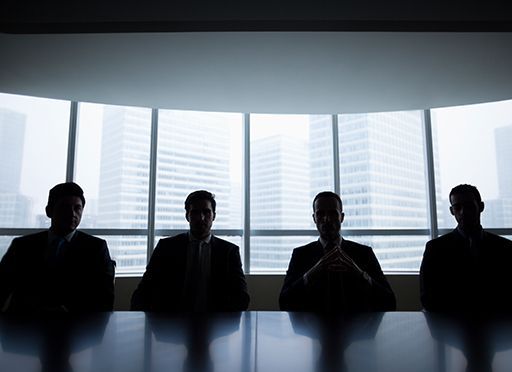
So, even at $26 billion, why should we think that this is going to deter any future bad behavior?
Here’s the problem, and my book also addresses this. You could tell judges that you’ve really got to deter corporations and you can’t deter them with the relatively modest billion dollar fine they’re using today. All that’s perfectly true because we do see companies absorbing these fines as a cost of doing business with no negative stock-market reaction when they are fined. But the answer that companies have, and it works very well with sentencing judges is: “Your Honor, if you fine us that number, we would just have to declare bankruptcy. We’re going to have to cut back, close the plant in small-town America, reduce our employment by 20%, and that means 7,000 people will lose jobs because we can’t meet the payroll if you fine us that much.” And that usually works because judges are human beings. They don’t want to shut down the plant and they don’t want to be criticized by the protests at the courthouse steps that they’ve caused a layoff. Therefore, I suggest, you’ve got to find a way to impose the penalty such that it doesn’t adversely impact the employees or other stakeholders in the company. Only the shareholders should be the target.
Okay. How do you do that?
The shareholders have one unique advantage. They can make a decision. They can even throw management out, and that’s increasingly possible with more concentrated ownership. My suggestion then is, if we force the company to pay these particularly exemplary large fines, not in cash, but in stock, this has no impact on the company’s balance sheet or its solvency. See, if you, in effect, order the company to issue a new distribution of shares equal to 25% of its outstanding shares, which will go to a victim compensation fund, this will not have any impact on the company’s cash flow.
It doesn’t take cash out of the till; thus, you have no reason to lay off an employee.
John C. Coffee, Jr.
All that’s happening is your shares used to be owned by, let’s say, 10,000 people. They’re now going to be owned by maybe 15,000 people.
Right. But how is that any better as a deterrent?
Well, it’s much larger, but it doesn’t force the company into bankruptcy. You’re talking now about numbers that might be $10 billion or more. Today, we’ve got two or three companies, Apple and Microsoft and Amazon, that have capitalizations of over a trillion dollars. Most medium-large companies, for example, the S&P 500, will have a capitalization of well over $10 billion. That’s the value of all the shares in the market times the current market price. So, if we really want to deter you, and you have a $10 billion dollar capitalization, then we impose a $4 billion dollars’ worth of shares penalty. That will hit the market and fall on shareholders who will own a lesser percentage of the company’s assets. If you double the number of shares outstanding, and give that second half of those shares to new shareholders, everybody owns 50% of what they owned before. That’s an enormous penalty, and shareholders would feel it, but others wouldn’t.
And then another penalty you talk about in your book is expanded probation.
Yes. Let’s look at that a little bit differently. There are a number of things you could do with probation. And there is authority to put a corporation on probation. You could appoint special monitors who truly do monitor and have power over certain kinds of decisions. Today, we just had a case involving Boeing where it received a very lenient deferred prosecution agreement, even though it caused two plane crashes that killed hundreds. Those crashes looked like they may have been caused because of misrepresentations by Boeing that led airlines purchasing its aircraft to give only limited retraining to its pilots. This made it easier for Boeing to sell the planes to these airlines, but it exposed passengers to death. Still, no monitor was appointed because Boeing didn’t want one.
Federal prosecutors are interested in trials, but know little about corporate governance. In my judgment, we need to find a way to impose penalties on senior executives who have caused the company to behave recklessly and skirt around law compliance.
John C. Coffee, Jr.
There are many companies today that we can say just aren’t law compliant. I’m talking about public corporations. In such cases, a probation condition might be imposed that the defendant could not issue incentive compensation (or only a small amount) during the five-year period of the probation. The premise here is that high-incentive compensation is criminogenic. It causes people to cut legal corners to maximize short-term profits. Restricting incentive compensation as a penalty gives all executives a common interest in keeping the company law compliant to protect their incentive compensation. This penalty would not fall on lower-echelon employees (who do not receive equity compensation).

Right.
This puts a penalty on senior executives so that they are now more deterred and indeed they would want to cause junior executives to obey the law. If you think, “If we get convicted, I’m not going to get any stock options for the rest of my time here before I hit retirement age,” that’s a severe sanction. And it makes you say, “I can’t let these people take these risks.”
It’s the right kind of incentive to deter.
Well, that’s the goal. And we can condition this penalty on some finding that its culture has been less than law compliant. This is a way to give everyone in management a common interest in monitoring for law compliance.
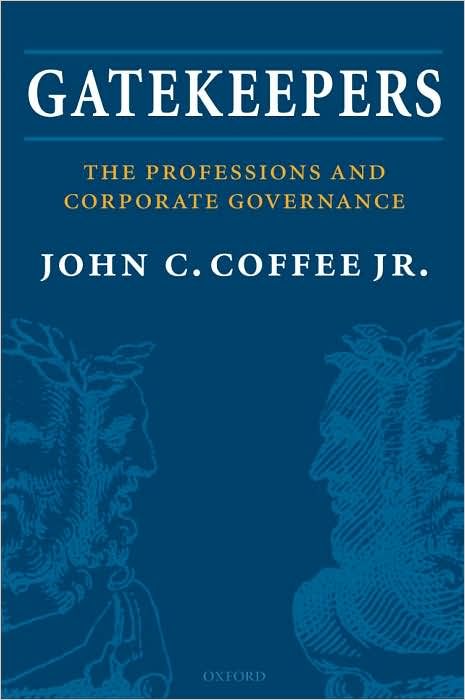
That makes good sense to me. I’m generally interested in corruption because you describe in both your books Gatekeepers and in Corporate Crime and Punishment the decreasing oversight and enforcement of white-collar crime over the past 20 years. It’s becoming a bigger problem, not a smaller problem.
There are things we could do. I would have said to President Biden that on his first day in office, he should have restored what’s called the Yates Memorandum, which was never really conscientiously followed, even by President Obama. But under Obama, his deputy attorney general, Sally Yates, drafted a memorandum telling all US attorneys, you can’t make a deal under which the corporation enters into a deferred prosecution agreement in return for the promise of the prosecutors that they will not indict any officers. That was a common practice. President Trump tossed out the Yates Memorandum, didn’t give it any weight at all, and his Justice Department placed few limits on deferred prosecution agreements and used them abundantly – to avoid indicting corporations. In contrast, I think we could immediately adopt the Yates Memorandum and say, “You have to disclose everything. You get no deferred prosecution agreement unless we think everyone involved has been identified to prosecutors, along with all evidence you have about their level of involvement.”
About the Author
John C. Coffee, Jr. is Adolf A. Berle Professor of Law and director of the Center on Corporate Governance at Columbia University Law School. He has been listed as one of the Most Influential Lawyers in the United States and has published widely about securities, takeovers and finance. In addition to Corporate Crime and Punishment: The Crisis of Underenforcement, he is also the author of Gatekeepers: The Role of the Professions in Corporate Governance.



